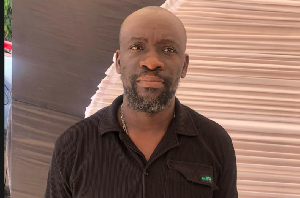The Acreaty Ghana Limited, a human capital firm in partnership with Dredge Masters Ghana Limited and Netherlands has brought together experts in the engineering sector to dialogue on how to explore new ideas and approach that can be incorporated to existing structures to manage flood-related problems in the country.
The experts, brought from Accra Metropolitan Assembly (AMA), Ghana Institute of Engineering, Ghana Irrigation Authority, Ministry of Works and Housing, Jospong Group of Companies among others shared practical solutions on dredging as a possible tool for the management of the challenges of floodings situation in Ghana.
Themed "Sustainable dredging as a tool for effective city planning and flood prevention, the one-day event also serve as a viable platform for the stakeholders to discuss, examine the suitable structural measures that can mitigate flood impacts in Accra.
Addressing the gathering, the Managing Partner for Acreaty Ghana Limited Mrs Elsie Appau-Klu noted that the dialogue "we believe has provided a great platform for both Ghana and Netherlands to share knowledge and information on best and workable practices aimed at managing the flood problems.
She expressed worry about the rising phenomenon of flooding problem which associated with its annual disasters in Ghana, particularly the city of Accra adding that within the past decades, floodings have become a global pandemic, which hampers economic and social development.
He pointed out that on June 3, 2015, Accra experienced an unprecedented flash flood event, coupled with an explosion at a Ghana Oil Company Limited (GOIL) filling station that resulted in a death toll of over 152 lives of persons.
She asserted that "every year our major cities have to struggle in dealing with the menace and blamed the situation on human errors which need a holistic approach to tackle the situation."
Adding that per the Emergency Events Database (EM-DAT): the 2015 flood in Accra resulted in economic loss to the tune of US 108, 200.000.
For his part, the Chief Director of the Ministry of Works and Housing, Mr Solomon A. Asoalla lamented over the increasing rate of flooding disasters saying that the causes of floodings are human-made problems.
He said the Ministry with its associated agencies and stakeholders will take steps to ensure the demolition of buildings in waterways which is a major cause of flooding in Accra as well as the country as a whole.
He sounded a warning to all other developers who do not have permits and build on waterways that they are the next target.
He stressed that we will comply with the law because if we are seen to be enforcing the law, we cannot be seen to be breaking it.
The Registrar of Engineering Council of Ghana, Engineer Wise Ametefe indicated that the council will continue to support the government to intensify public education on the effects of the floodings in the country
Mr Ametefe minced no words when he expressed disappointment in the Assemblies for being reluctant in performing their mandatory duties to demolish unauthorized building structures including churches on waterways in the country.
According to the Council, the Assemblies should be blamed for the loss of lives and properties in flood-related disasters because they have been mandated to remove all the building structures being built on the waterways.
He could not fathom why the Assemblies would be adopting human faces in their exercise to demolish structures and shops illegally builts on the waterways.
According to him, some of the houses were built without permits and that the owners will be dealt with legally.
General News of Tuesday, 19 November 2019
Source: Acreaty Ghana













